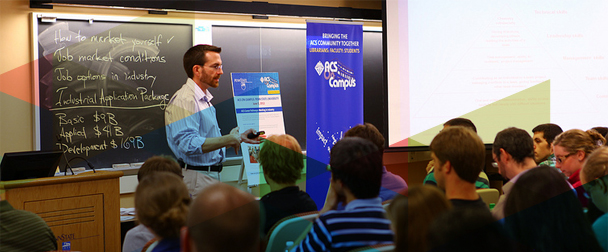
The Latin America innovation and entrepreneurship ecosystem is now regularly appearing in the global mainstream media, with headlines like The Next Great Startup Will Be A ‘Unicornio’ and Top VCs Are Chasing Digital Companies In Latin America. As TechCrunch states in its article, “Successful digital entrepreneurs have channeled the ubiquitous penetration of social and mobile technologies to drive growth for their companies. It should speak volumes that São Paulo, Rio de Janeiro, Buenos Aires and Bogotá individually surpass New York City in terms of Facebook, Skype or WhatsApp subscribes and usage.”
![]() I have seen this for myself in Brazil in particular, where I have been working with local businesses and startups since 2011. Some of the entrepreneurs I first met four years have already had successful exits in the digital media space. The wider region covering Brazil, Argentina and Mexico itself has around 600 million people, with only two languages (Spanish and Portuguese), giving companies a more homogenous market opportunity than say Europe where there are multiple languages. This provides economies of scale for more rapid growth, especially in the digital and social media sector.
I have seen this for myself in Brazil in particular, where I have been working with local businesses and startups since 2011. Some of the entrepreneurs I first met four years have already had successful exits in the digital media space. The wider region covering Brazil, Argentina and Mexico itself has around 600 million people, with only two languages (Spanish and Portuguese), giving companies a more homogenous market opportunity than say Europe where there are multiple languages. This provides economies of scale for more rapid growth, especially in the digital and social media sector.
In Brazil, the country is vast and tech clusters have emerged in recent years across the country – from the north, with Porto Digital in Recife, to the south in Porto Alegre; of course in between there are many clusters in Sao Paulo, Rio de Janeiro, Belo Horizonte, Florianopolis, and Curitiba.
But the origins of Brazil’s Silicon Valley clusters go much further back than this, with places like Campinas in the state of Sao Paulo and Santa Rita do Sapucai in the state of Minas Gerais.
Campinas
Campinas in particular is often referred to as Brazil’s Silicon Valley. Many research institutes, tech parks, incubators and probably over 30 of the world’s top 100 tech companies are located here. One of the many research institutes located here is CPqD – which claims to be the largest ICT R&D program in Latin America, commercializing software solutions, licensing technologies to industries and creating companies. It has worked on cutting edge developments focused on several areas including optical communications, mobile communications and wireless networks, IP platforms, sensor networks, information security and smart grid.
CPqD was created in 1976 as a telecom research and development center for Telebras, the then government-owned company with monopoly rights over all public telecom services in Brazil. In 1998, after Telebras was privatized, CPqD became a private-law corporation, broadening the scope of its activities and opening up new markets.
Santa Rita do Sapucaí
The technology origin of the city of Santa Rita do Sapucaí, currently considered one of the main hubs for the electronics industry in Brazil, dates back to 1959, when a local citizen named Luzia Rennó Moreira created the first technical education institute for electronics in Latin America. According to TechinBrazil, Santa Rita do Sapucaí is now home to 153 companies, which are responsible for 14 thousand employees housed in the city and surrounding areas.
The city presents a strong culture for entrepreneurship, encouraged early in schools, resulting in the creation of several incubation projects each year. The local industry had revenue of Brazilian Reais 3 billion in 2014, generated by the products manufactured for several segments of technology industry. The companies export their products to more than 40 countries around the world.
Porto Alegre
As mentioned, many other tech clusters are flourishing around Brazil now. For example, in the south of the country in Porto Alegre, the science and technology park at PUCRS (TECNOPUC) has just launched a new initiative, Startup Garage, to help entrepreneurs turn good ideas into successful businesses. Startup Garage, a business modelling programme run by the park’s “Raiar” incubator, provides an opportunity for students, professors and researchers at the PUCRS University Campus to ‘transform their ideas into reality’ according to their press release.
Leandro Pompermaier of TECNOPUC said, “We know that many people have ideas, but few ideas can become business. There are several reasons to make it happen, but a major risk is the lack of preparation of the entrepreneur. Validating ideas that can turn into promising businesses is one of the great challenges of innovation and entrepreneurial ecosystems, especially when related to the community of students and researchers at a given university. Startup Garage helps people who have ideas and do not have the knowledge of the tools needed to validate their hypotheses and turn them into sustainable businesses.”
Given the heightened interest in Brazil – with the previous high growth that the Brazilian economy witnessed, and despite its flat growth in the last year – there have been many Silicon Valley (USA) based investors and accelerators traveling to Brazil and investing there and the wider region in Latin America. One of the challenges in the past, according to a conversation I had with one of the US-based founders of Floripatech (a business accelerator in Florianopolis) about three years ago, was that it was difficult to get Brazilian startups to come out of the mindset they had in public service jobs, and instil more of an entrepreneurial attitude to developing their business. But that is now slowly changing as entrepreneurs in Brazil make their own successes despite the public sector bureaucracy around them.
Enviado do meu iPhone
click agora 👉 https://news.google.com/s/CBIw6NGf108?sceid=BR:pt-419&sceid=BR:pt-419
